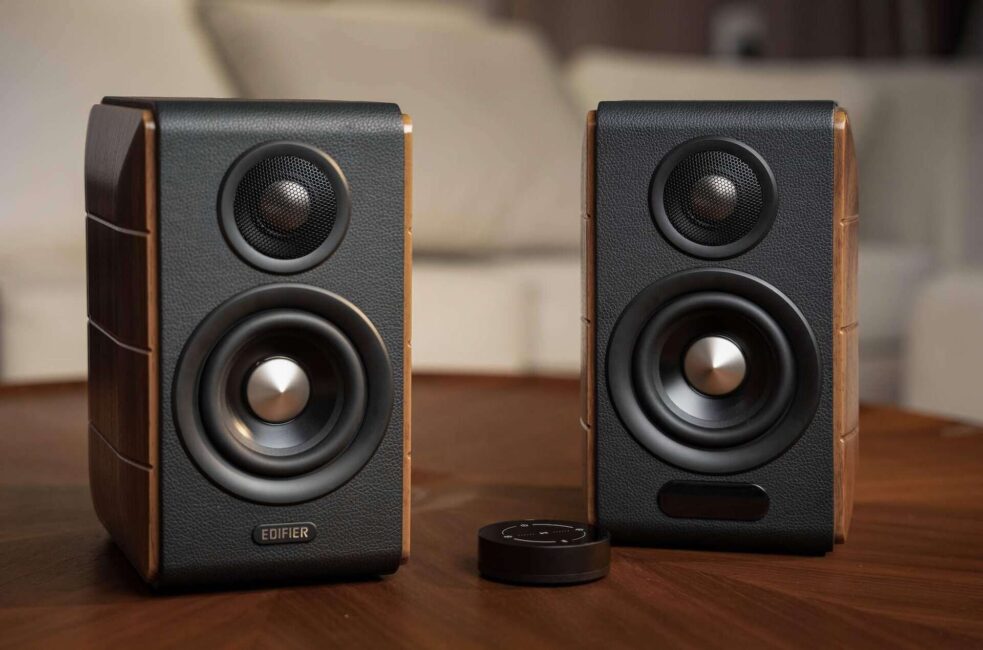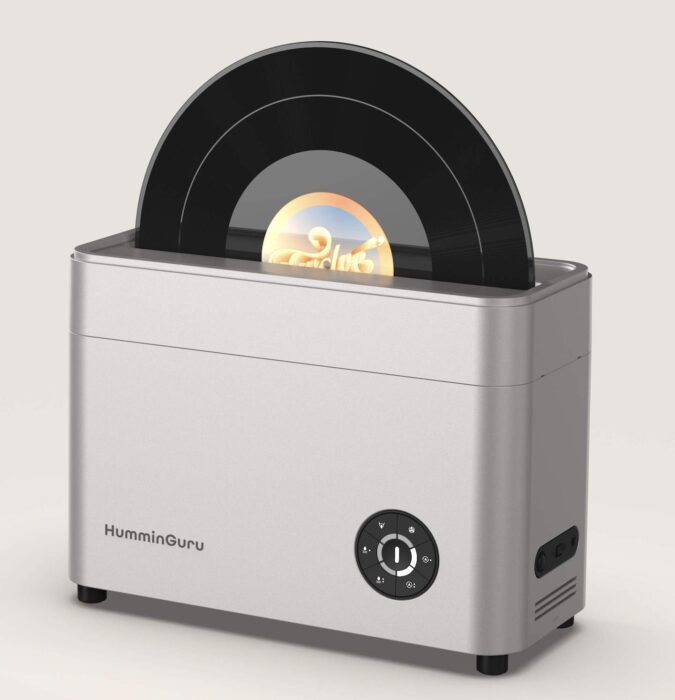The Article
Black Rhodium Storm speaker cables: Going Down A Storm
2nd March 2016

I’ve never reviewed a Storm before. Been the victim of one or two. This pair of Storm cables from Black Rhodium promises to soothe a furrowed brow, though, not cause one. Aimed at high-end users and positioned at a high-end price, the Storm is based upon the older Athena design but the Storm modifies this cable approach. In effect, the Storm is the result of forging two Athena cables and running them in parallel in an effort to lower impedance.
The Storm includes the Graham Nalty Legacy VS-3 Vibration Stabilisers which aims to lower distortion while the cable has also emerged from DCT++ cryogenic processing treatment. This involves temperature processing above and below room temperature. The idea of DCT++ is to alter the molecular structure of the cable to improve uniformity. You can apply cryogenic treatment to just about anything in the hi-fi suite of electronics and I have heard sonic benefits from the process on other, non-Black Rhodium, kit. It tends to lower noise and produce better quality silences, as it where, so it will be interesting to see how this effect has changed this cable.
Another treatment applied to this cable is one that I am less familiar with and have seen via no other outfit except Black Rhodium. The Crystal Sound process is applied to the cable following the completed DCT++ process. It is supposed to refocus the outermost skin of the conductor. The result is that the surface of the conductor is supposed to be more closely packed and regular, to aid conduction. The aim is to enhance the bass and increase clarity. We will see.
The core of the Storm has been twisted to prevent the cable acting as a loop aerial and, thus, deflecting RFI/EMI signals generated from radio, Wi-Fi, mobile phones and even central heating systems.
The cores themselves are silver-plated copper with silicone rubber insulation and terminated with Rhodium-plated Locking Banana Plugs. These plugs are treated with the DCT++ CS treatment too.
So what did they sound like?
SOUND QUALITY
I began with Eddie Gorme and a slice of bossna nova from the album, Cuatro Vidas, with El Trio Los Panchos. There are plenty of options to change or improve the sound here with the use of Spanish guitars, conga drums, the breathy vocal of Gorme herself and a harmony backing with lots of potential silence to change things too.
The Storm, like other Black Rhodium cables, likes to take the upper mids to the very edge of acceptable listening to access as much information as possible. There is an eagerness to catch, not just the detail but the finer detail such as the edges of notes from plucked acoustic guitars for example. With a hi-fi system that is a touch unbalanced, this can cause issues – although the effect is only really heard at higher volumes – because the cables are always on the edge of brightness without actually entering into that domain. With a hi-fi that stays well behaved, though, the Storms will provide a splendid sonic feedback. Of particular note was the smooth, wide and deep soundstage in which the harmonic and beautifully blended voices sang like angels, combining to such an effect that they often hit moments of pure vocal perfection, given to them by the dynamic breath of the Storms.
The conga drums also opened up and provided a breadth of scope that added character and personality to this unique percussion. That was joined by the expansive guitar that also provided increased detail and musicality. The core of what was happening was this. Most cables sound very ‘hifi’, giving you only the start and end of the note…but not the bit in between. The Storms gave you the middle bit too, they allowed a more natural, effusive ad uninhibited performance to take place.
Playing Your My Best Friend from the half speed version of Queen’s A Night At The Opera, the Storms had a significant effect on the track. Frankly, you just hear ‘more’. There is far more going on in this track than normal. It’s almost like watching a guy with an accordion slowly pull it apart from its most compressed state, widening it to reveal ever more material in between each fold. That’s what the Storm does to music.
Hence, Brian May’s lead guitar has never said as much. The extra touches here and there, twiddly effects and subtleties abounded while, most significantly, on Roger Taylor’s drums, the treble was very much in evidence via the cymbals. An instrument which was previously rather shy in making much of an appearance within this mix. The trademark harmonic vocal effects were also more complex. The conglomeration of a host of voices rather than an solid mush was the order of the day here.
Moving to the orchestra arrangements of composer, conductor and arranger Gianni Ferrio and El Varon Rebuscante which combined a complex array of European folk instruments from recorders, the accordion, strummed acoustic guitars alongside grander orchestral excerpts including a bank of strings and brass. The acoustic guitar strumming was delicate and sublime while the the subtle secondary wood block percussion in the rear of the mix was both precise and delicate with a small array of enhanced reverb emanating from it.
CONCLUSION
That the Storm needs careful attention and matching to the right system means you really should demand a demo before you buy. But then, at this price, that’s something you should do anyway. Once successfully matched, though, the Storm will provide a delight in terms of sound quality, opening up music like never before with a vast amount of detail on offer that makes for an incredible transparent play back.
BLACK RHODIUM STORM DCT++ CS 3M LOUDSPEAKER CABLE
Price: £3,000
Website: www.blackrhodium.co.uk
Tel: 01332 342233
Good: open and dynamic playback, reveals even subtle detail in all its glory, characterful bass
Bad: requires careful system matching
RATING: 8
REFERENCE SYSTEM
Origin Live Sovereign turntable/Enterprise 12″ arm/Miyajima Takumi cartridge
Icon PS3 phono amplifier
Aesthetix Calypso pre-amp
Icon Audio MB845 Mk.II monoblock amplifiers
Quad ESL-57 speakers with One Thing upgrade
Atlas cables




